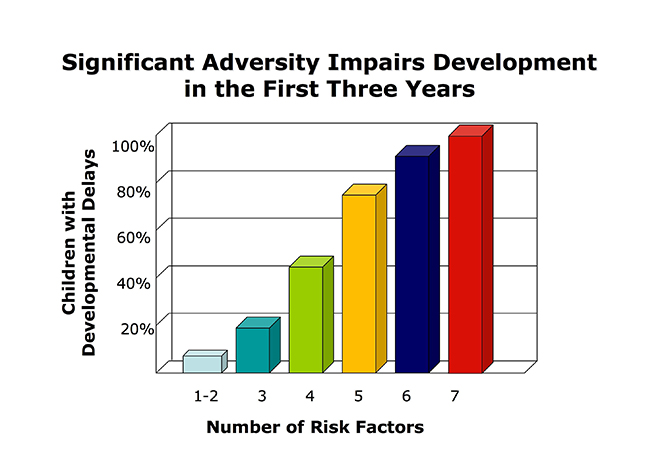The adversities children face in their childhood can permanently affect their brain’s biology and developing architecture and creates a permanent heightened state of stress in children. But this negative wiring can be offset through the development of caring, empathetic, supportive relationships that can halt and ever undo the damage.
Toxic stress caused by major adversities in the formative years, such as CHILDHOOD DOMESTIC VIOLENCE, neglect, or poverty, can negatively wire the circuitry of a child’s developing brain. Childhood adversity gets in the way of children growing up to be healthy adults, and rather open them up to a plethora of mental health, physical ailments and even major health issues like heart disease in later life.
The best way to help children who face extreme adversity is to provide a sound support system and strong supportive relationships. Being there for a child struggling with adversity is one of the best ways to ensure the child develops in a healthy way and learns healthy positive stress coping mechanisms. Providing a support system entails having adequate policies and programs in place that address potential issues from mental health to education to improving their learning and coping capacity.
Learn more and read the full Harvard University Center on the Developing Child (2007) article – The Impact of Early Adversity on Child Development (InBrief) – HERE.
To help prepare adults to more effectively help children, we have been hard at work for a decade building tools and resources that have never existed before. One of these tools – our empirically-tested, evidence based program, CHANGE A LIFE – is a free, simple, self-administered online program that can teach ANY adult how to step into the life of a child with simple support and messages of hope that can help change their life. It prepares ANY adult – regardless of occupation or previous background in child development – to effectively become THE ONE for a child facing CDV and help foster their resiliency. For more about CAL or to take the program, click HERE.


